Cory House
The Cory - Cornell Farmstead at 212 Cornell Road, Westport, Massachusetts, circa 1780.
The Cory complex includes an oak timber-framed dwelling house; a two-story, double-pile, gable roofed, center-chimney house; a cow barn; and foundations of various out-building. Surrounded by stone walls, the buildings are situated on the west side of Cornell Rd. amid open meadows and cow pastures.
-From Anne W. Baker's Site and Building Summary - Cory Farm Complex
Restored in 2007 by Architecture Preservation Group, owners, Tim and Maryann Bryant, and
historic preservationist, Anne W. Baker.
Roger Williams University Archives
Anne W. Baker Collection
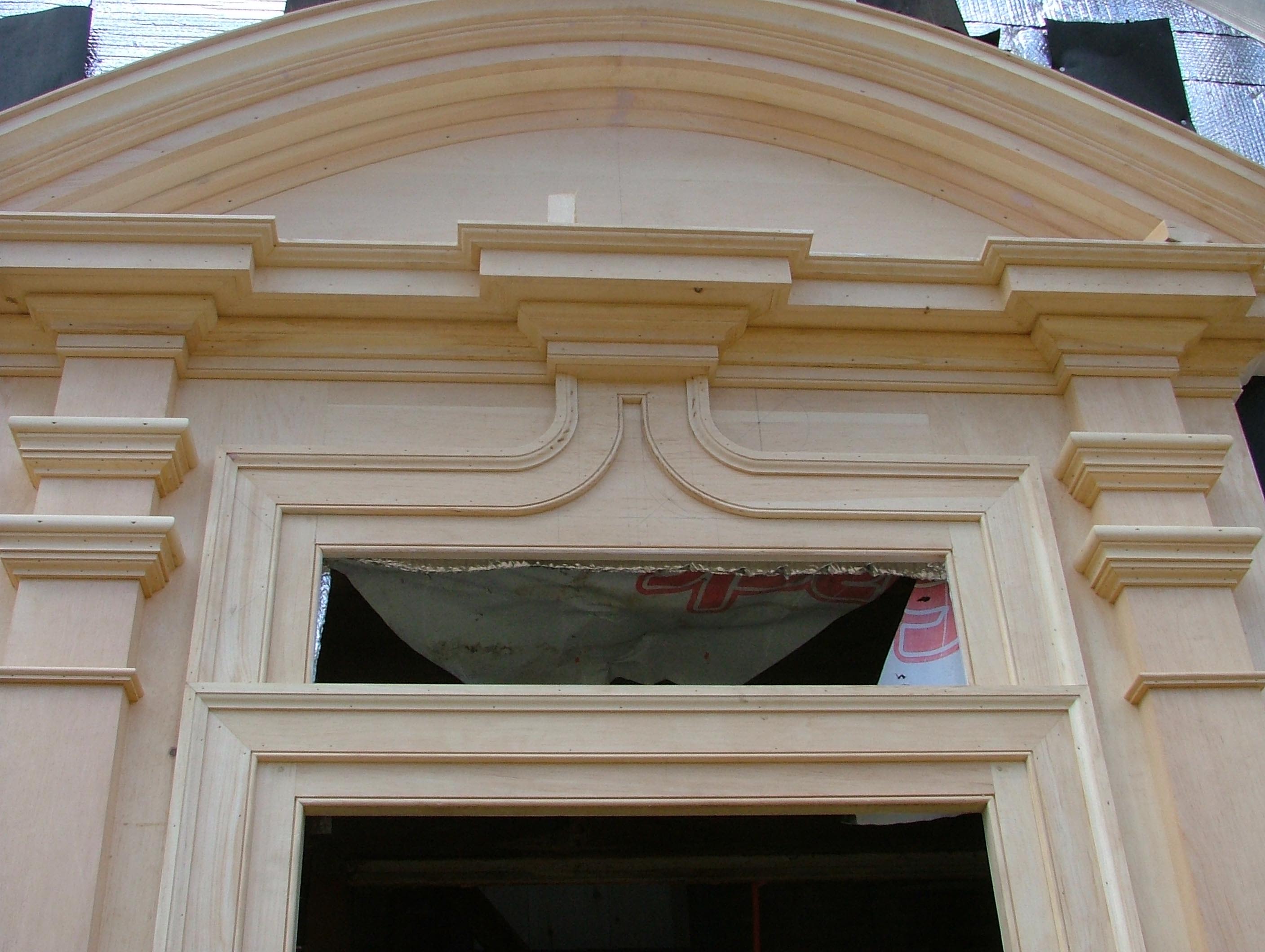
The Cory House Restoration Project took nearly three years to complete. A dendro-chronology analysis was performed on the houses frame that produced an original construction date of 1777.
Much of the original material from the house was missing or had been removed. Painstaking efforts were taken by the owners, Tim and Maryann Bryant, Anne W. Baker, and the Architecture Preservation Group to discover clues in order to complete an honest and accurate restoration.
In the selection to the right Steve Tyson, President of the Architecture Preservation Group, describes some of the methods used in the restoration of Cory House.
"As I think back to the start of this project, I was disheartened by the lack of original material in the house. All the doors were missing all the plaster had been removed and the mantles were ripped out. The central chimney was long gone, there was no original flooring on the first floor, the original windows were missing and all the exterior trim and siding were gone. The site also had the remains of a few outbuildings that had been burnt down."
"The task of restoring the house started with examining the few samples of original fabric that had remained. Tim found the remains of a burning pile from which we had uncovered quite a few pieces of mantles, interior crown, chair rail, some doors, etc. Although the chimney had been removed years earlier (probably in the 1920's), the original wood lintel remained. We stripped the exterior siding ( an imitation brick asphalt shingle), and found the original window and door scars. It was only the ghost of what was there, but an accurate account of the size and shape non the less. The windows were plank framed with an arched window header. Much of the research was done on this finding, by Anne W. Baker who was a consultant on the project. The result of the research was that this style was rare if not unique. We did a pencil rubbing of the burn marks then fabricated the plank frame windows with arched headers that matched exactly the shape of the ghost on the original sheathing."
From: Steve Tyson's Letter of Support for the Cory House Nomination for the MHC Award.
Cory House - Before and After Restoration
About the Cory/Cornell Farmstead
The Cory-Cornell Farmstead is a historically significant complex of buildings and surrounding landscape features in Westport, MA. It is the homestead of two important families, the Cory family who first purchased, owned and established the farm and the Cornells who added the Greek Revival wing in about 1842. The house and fields are surrounded by an original stone wall and contains its original well, a lye leaching stone, and in the cellar under the Greek Revival addition is a 16-foot circular cistern.
Preliminary research indicates that Thomas Cory, built or had built the original Georgian core of the property around 1780 or possibly slightly earlier. By June 20, 1796 when Cory made his will, parts of the house are described. The farm was left to his son, William Cory, with rights left to his daughter, Elizabeth. In 1848 the property was purchased by Joshua Cornell and remained in th family until 1920. From 1938 - 2003 the Pierce family owned the property.
Site and Building Summary - Cory Farm Complex.
by Anne W. Baker. December 18, 2004.
Architectural and Structural Report:
The following report is based on careful and extensive analysis of the exterior and interior of the house before removing original and existing fabric. The site, dwelling house, and barn have been documented by wills, deeds, measured drawings, and photographs.
The initial survey of the house was a " bitter-sweet" but exciting experience as all the plaster and lath and some of the finish details had been removed. Why? In 2000 Dorothy Pierce, the previous owner, decided to renovate the interior of the dwelling house where she had lived since the 1938. Her nephew proceed to strip out the plaster, lath, mantles, doors and moldings. Six months later Dorothy changed her mind and her nephew stopped further demolition. In 2003, when I first saw the house I was devastated to see what he had done. However, on second look I realized that the sweet side of his demolition was an opportunity to see the entire timber frame plus visible evidence of all the changes over the years, i.e., original interior door openings, windows sealed behind later plaster, and clear marks on the partition walls of the exact dimensions of the fireplace openings along with the first floor over-mantles and the second floor Federal mantles that otherwise we would not have known. Fortunately the nephew had left a great deal of the door molding, crown molding , chair-rail molding, and wainscoting intact. Because of this I was able to determine the original details for each room. In particular the nephew had left a cornice molding over one window that clearly indicated there had been interior sliding shutters. In another room he had removed the raised panel from over-mantle but had left the pieces of the bolection molding that held the panel in place. A further search lead me to a dump in the front yard where I found the complete mantle from the second floor southeast chamber. lengths of crown molding, H hinges, chair rail, door frames, hand split lath, and so on. In addition eight of the original four panel raised panel doors plus many old photographs were found in the barn. One photograph was of the missing fireplace over-mantle in the first floor southeast chamber.
After digesting all this important information I felt very strongly that this was a great opportunity for people to learn how to understand the importance of "above ground archeology" Before rehabilitation began I gave twelve tours of the house and land to encourage people to realize how much can be learned about our architectural and cultural history by observation. These tours which took place in October 2004 were sponsored by the Westport Historical Society
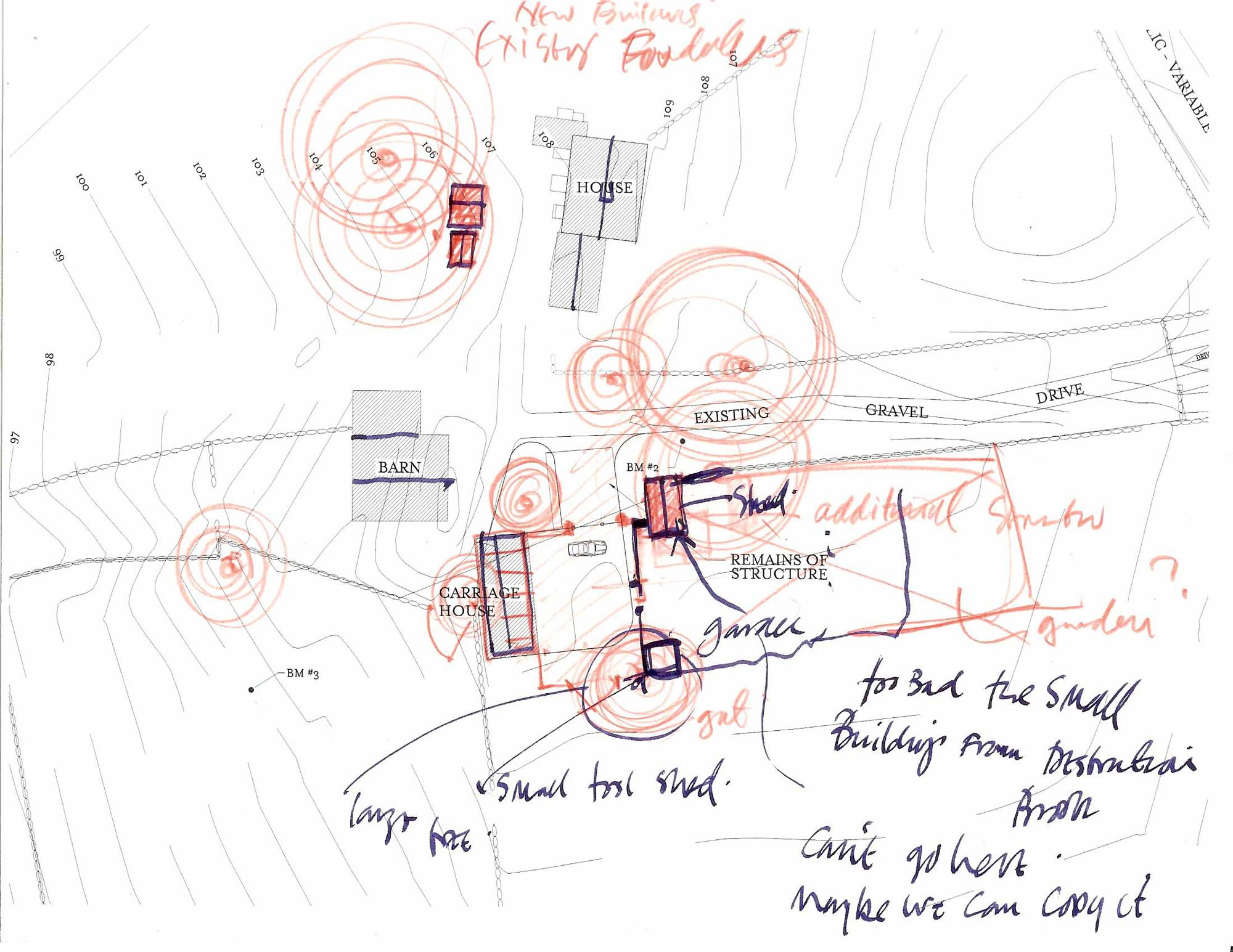
Drawing of Cory Farm Complex - Dwelling and Outbuildings.
Drawing of Cory Farm Complex - Dwelling and Outbuildings.
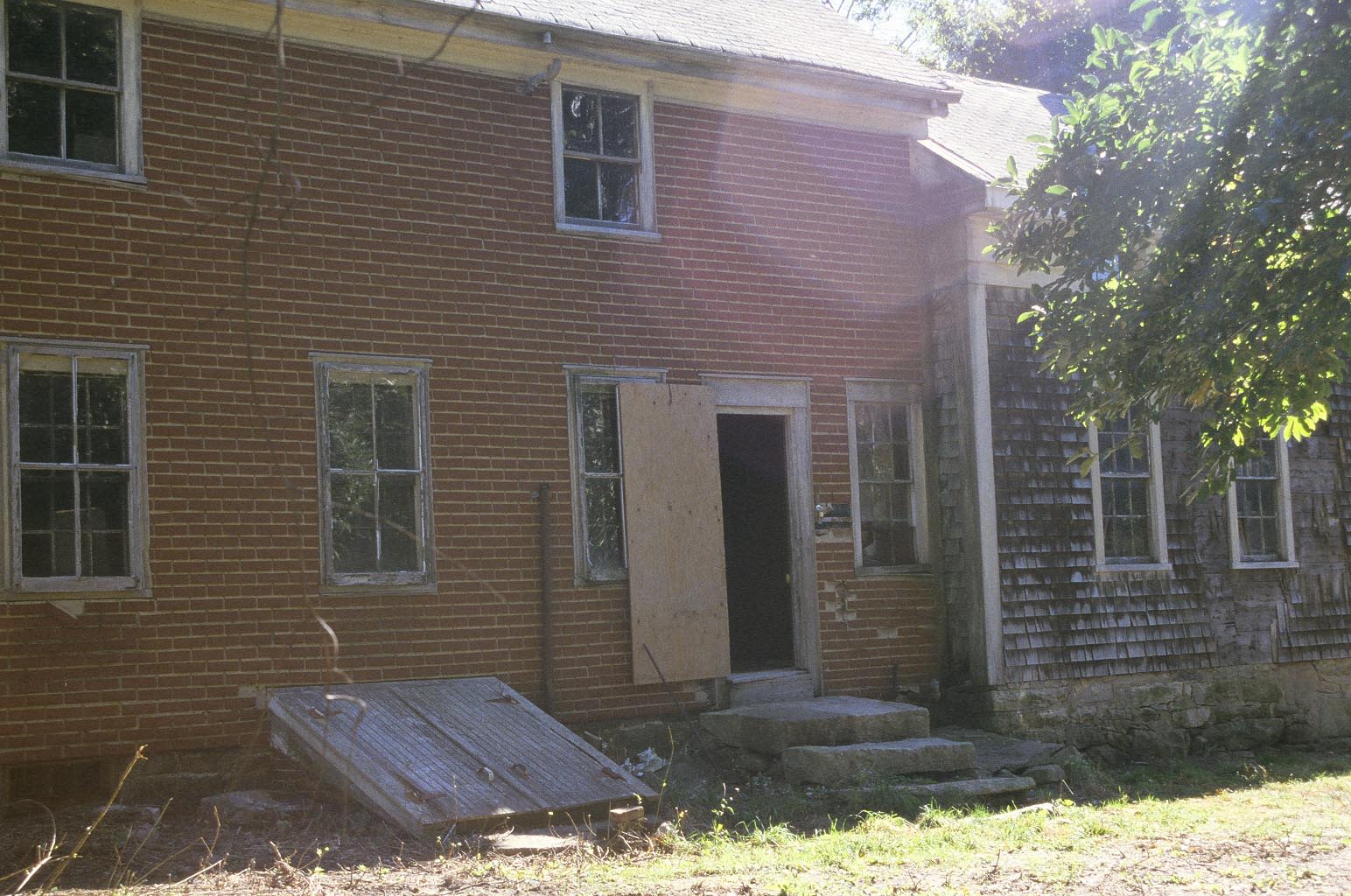
Back View of the Cory House.
Back View of the Cory House.

Fireplace in the southeast parlor on the first floor.
Fireplace in the southeast parlor on the first floor.
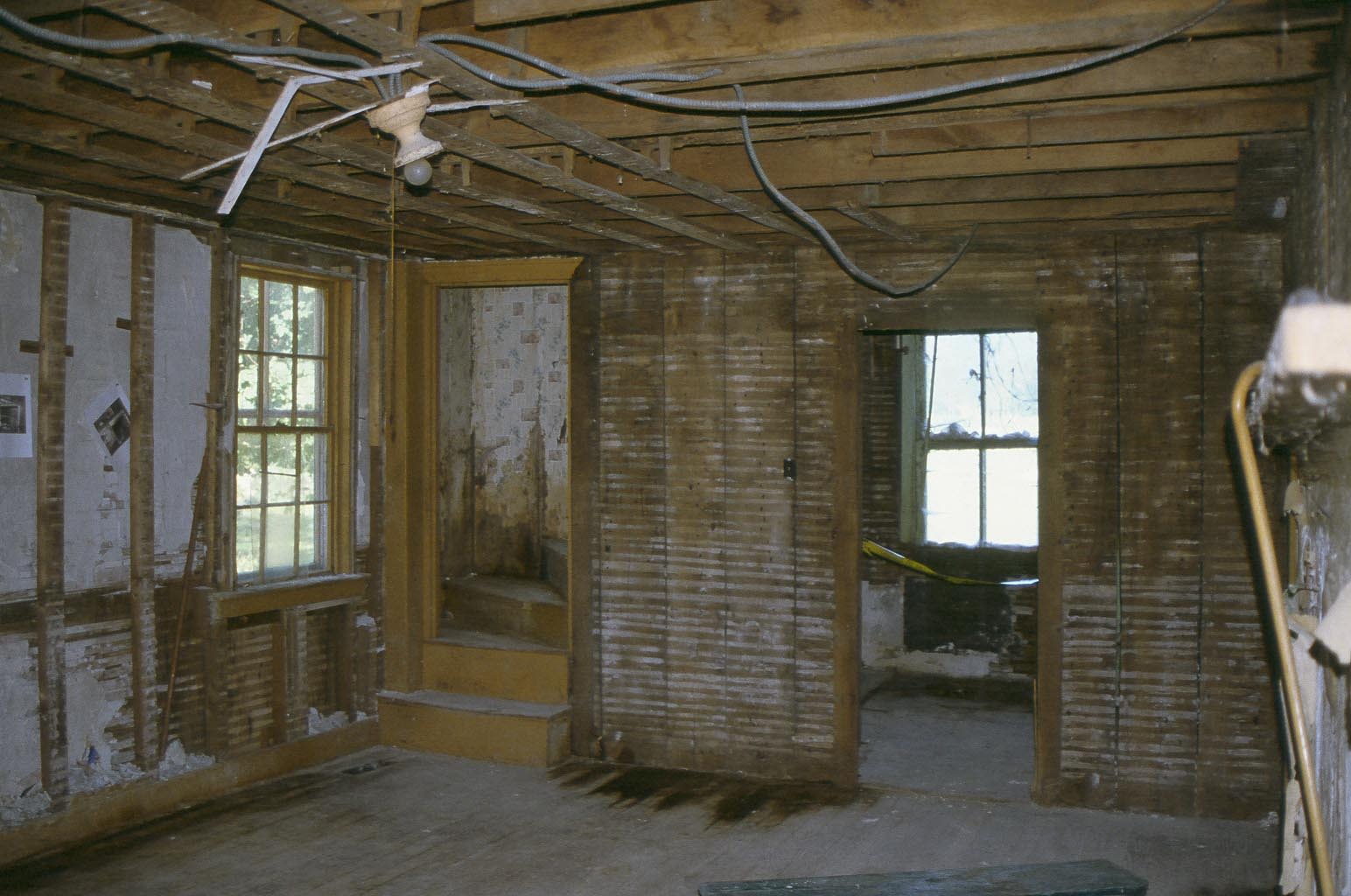
Old kitchen in Cory House showing ceiling, stairs and pantry.
Old kitchen in Cory House showing ceiling, stairs and pantry.
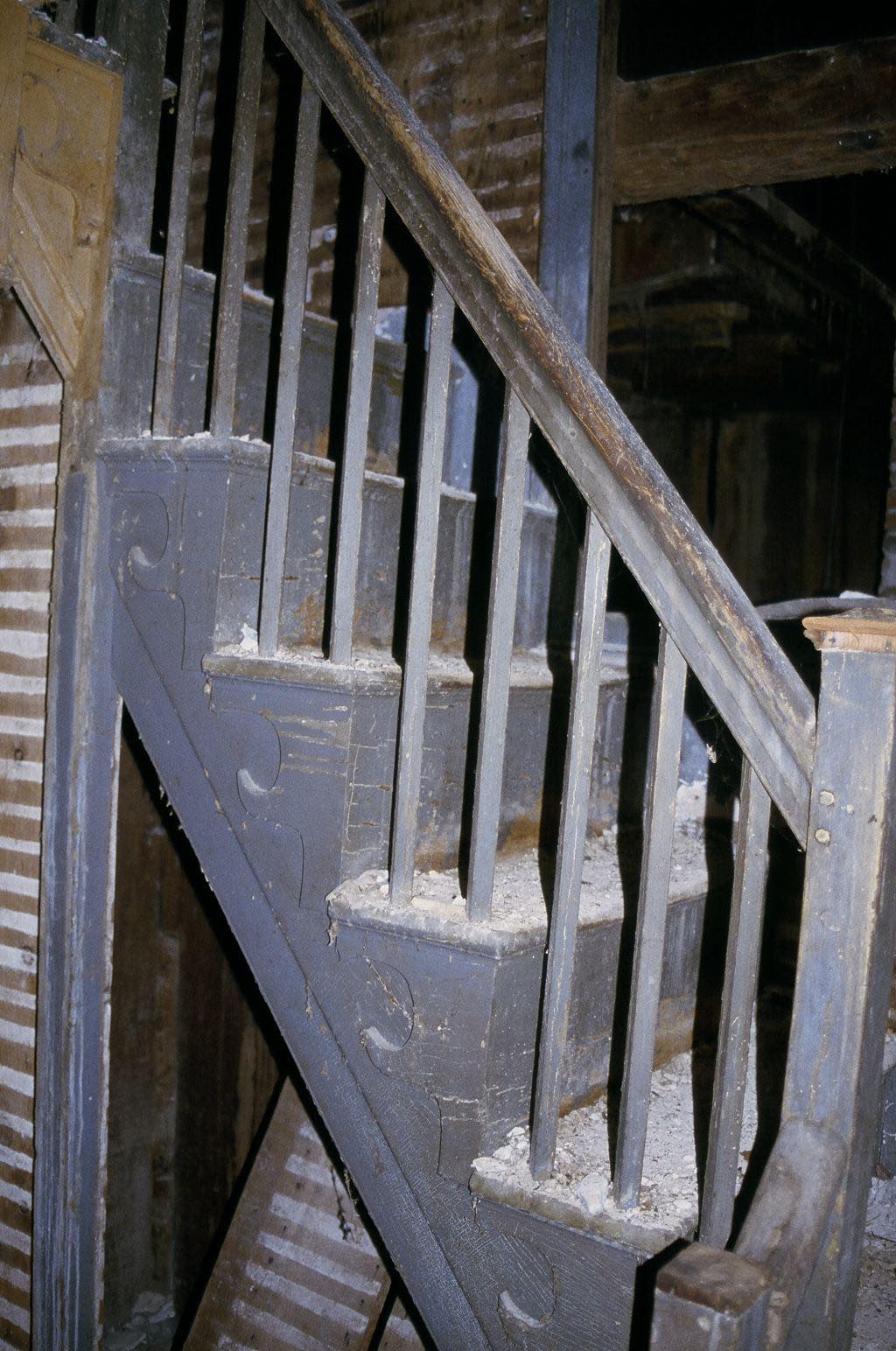
Cory House front stairs and smoke oven
Cory House front stairs and smoke oven
Photographs of Cory House Restoration
Selected photographs from the Cory House Restoration Project taken 2004- 2006. To see all the images from the project go to https://docs.rwu.edu/baker_cory_house
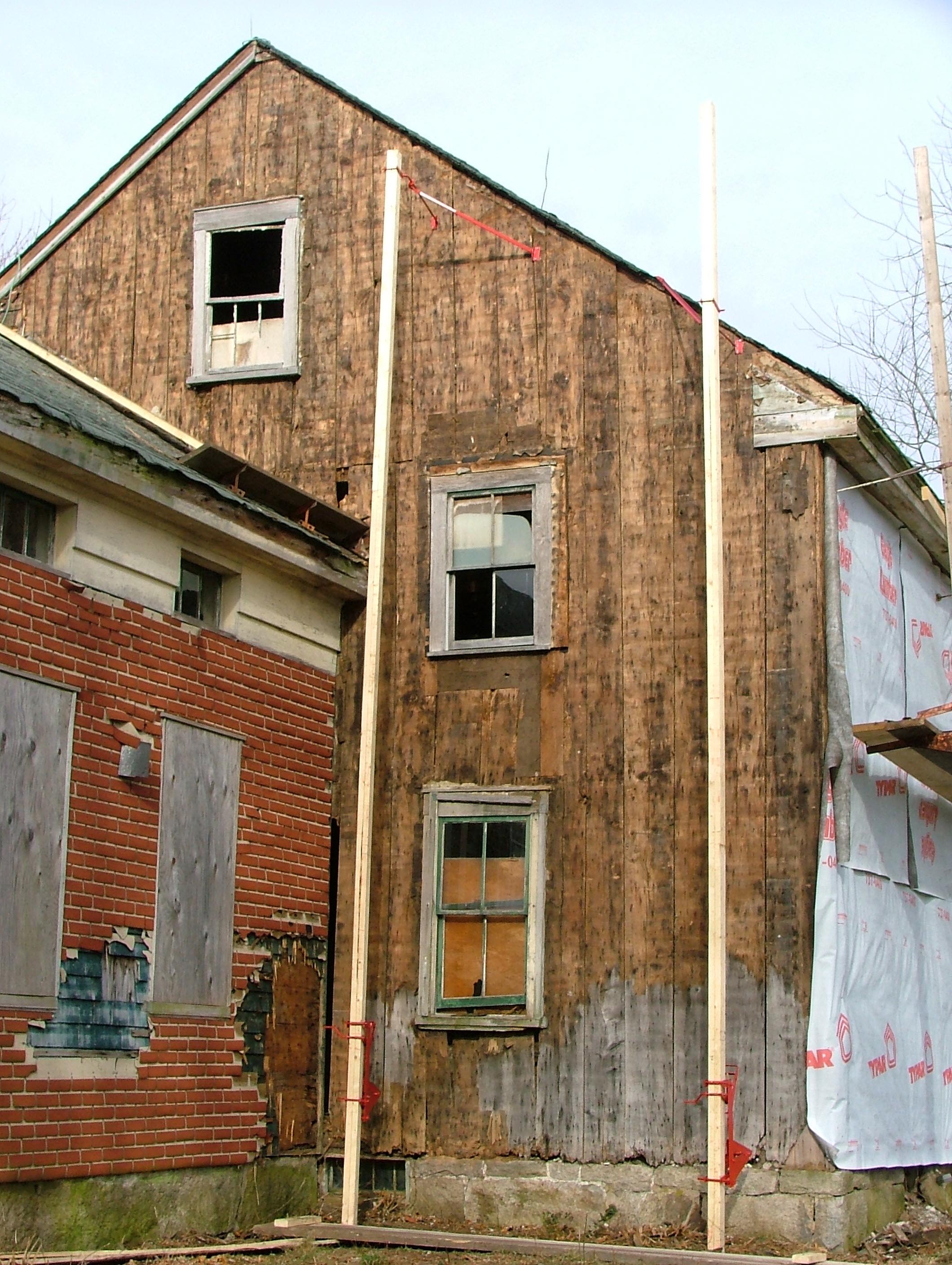
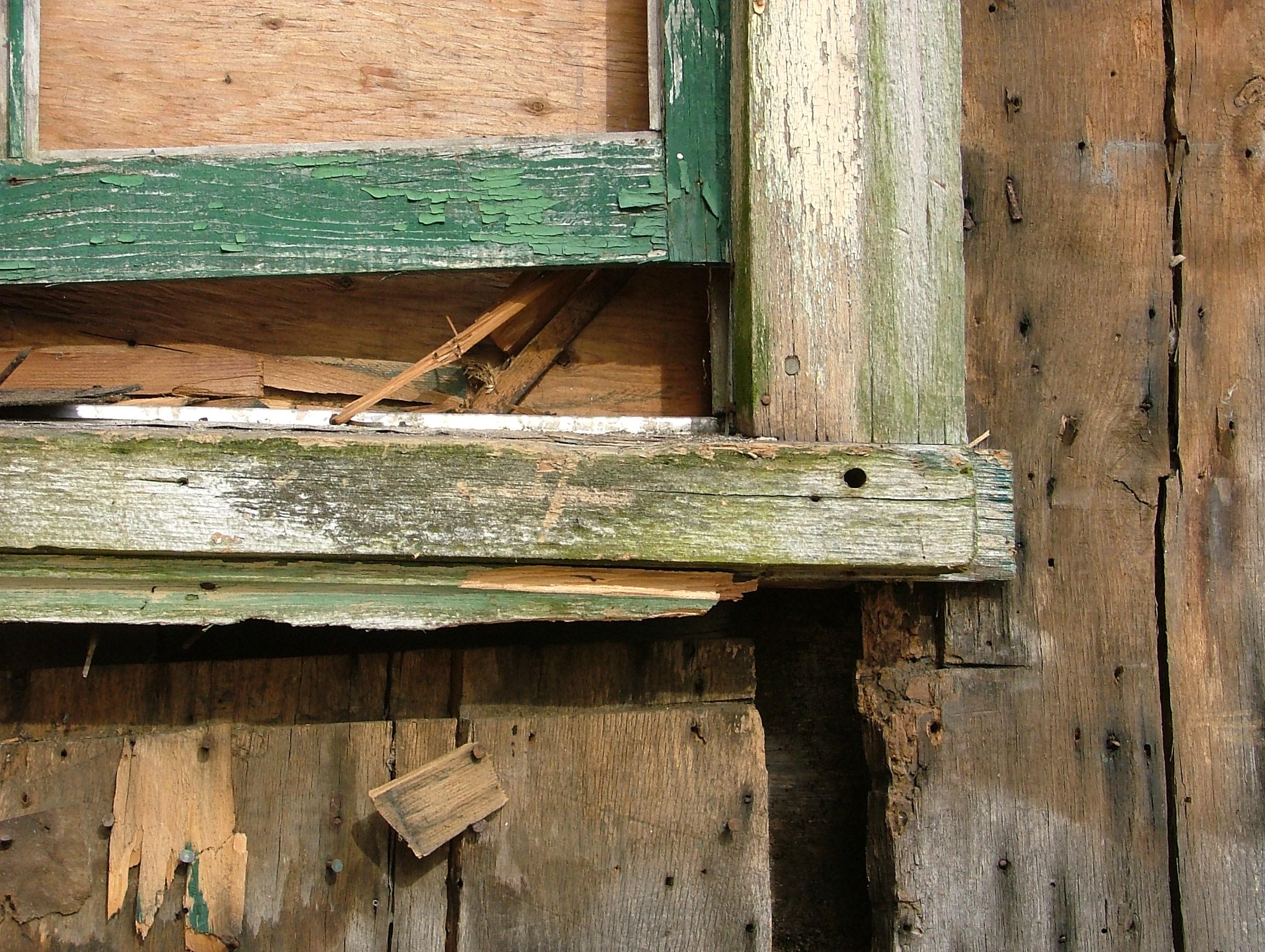
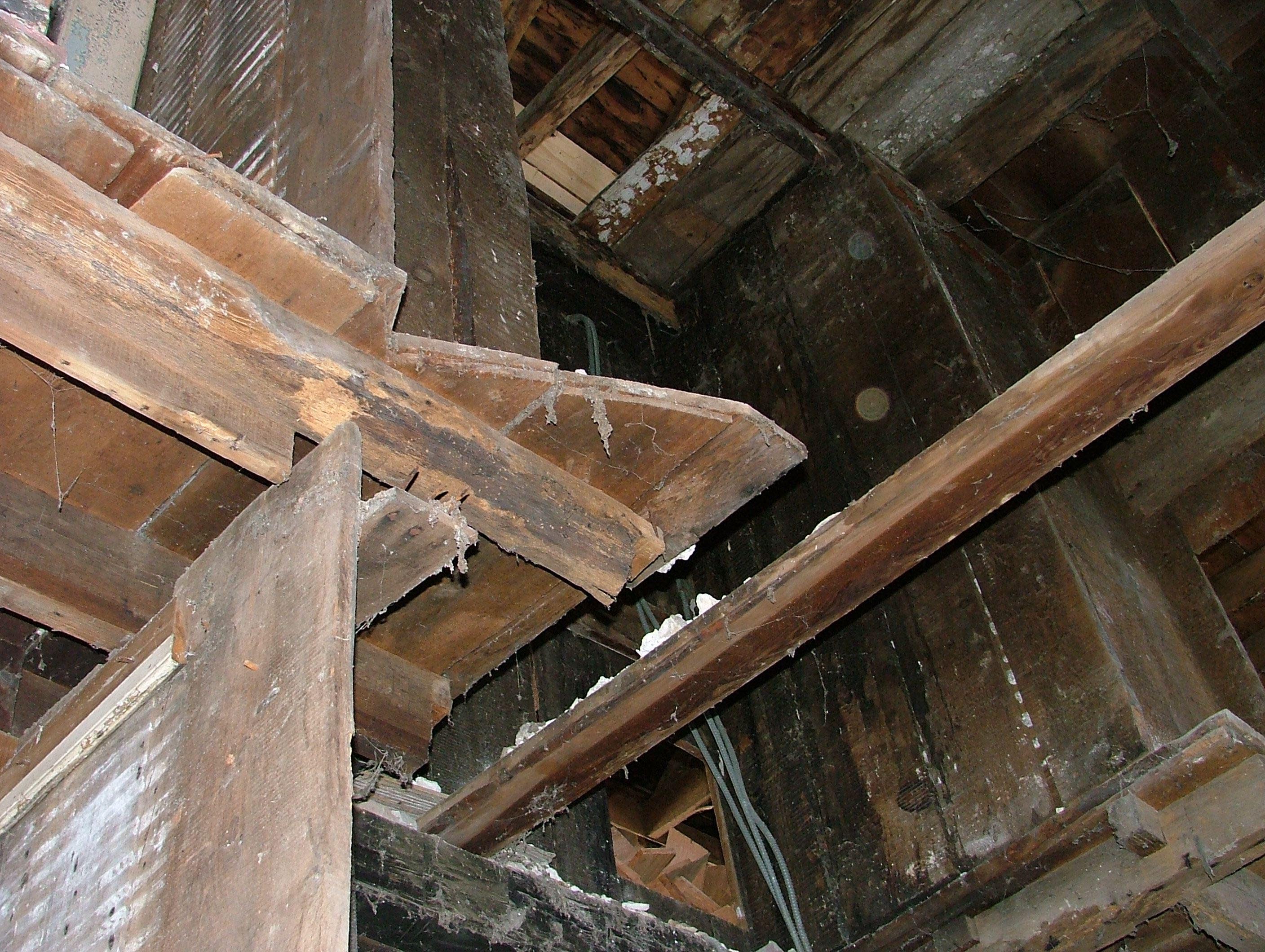


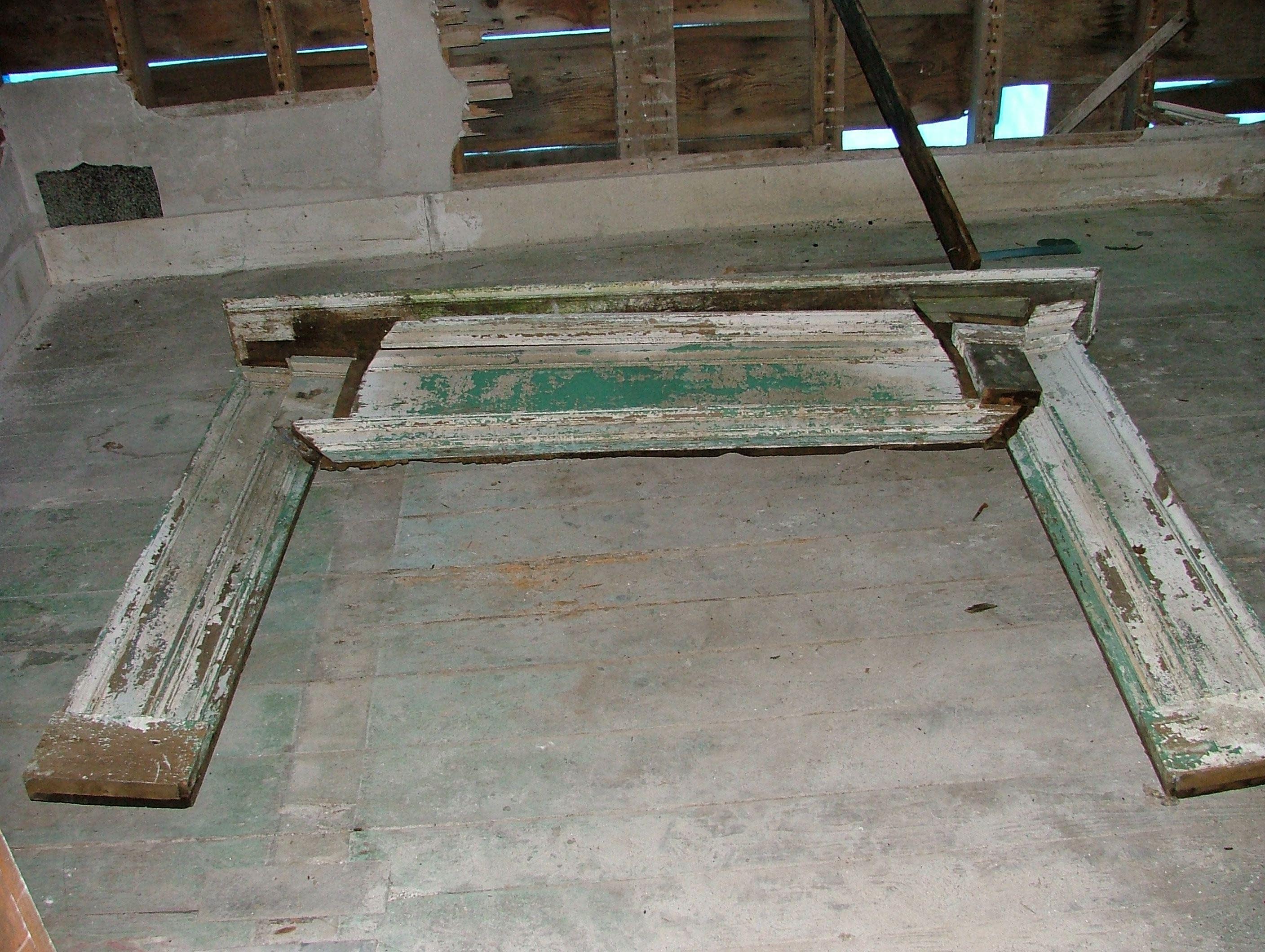

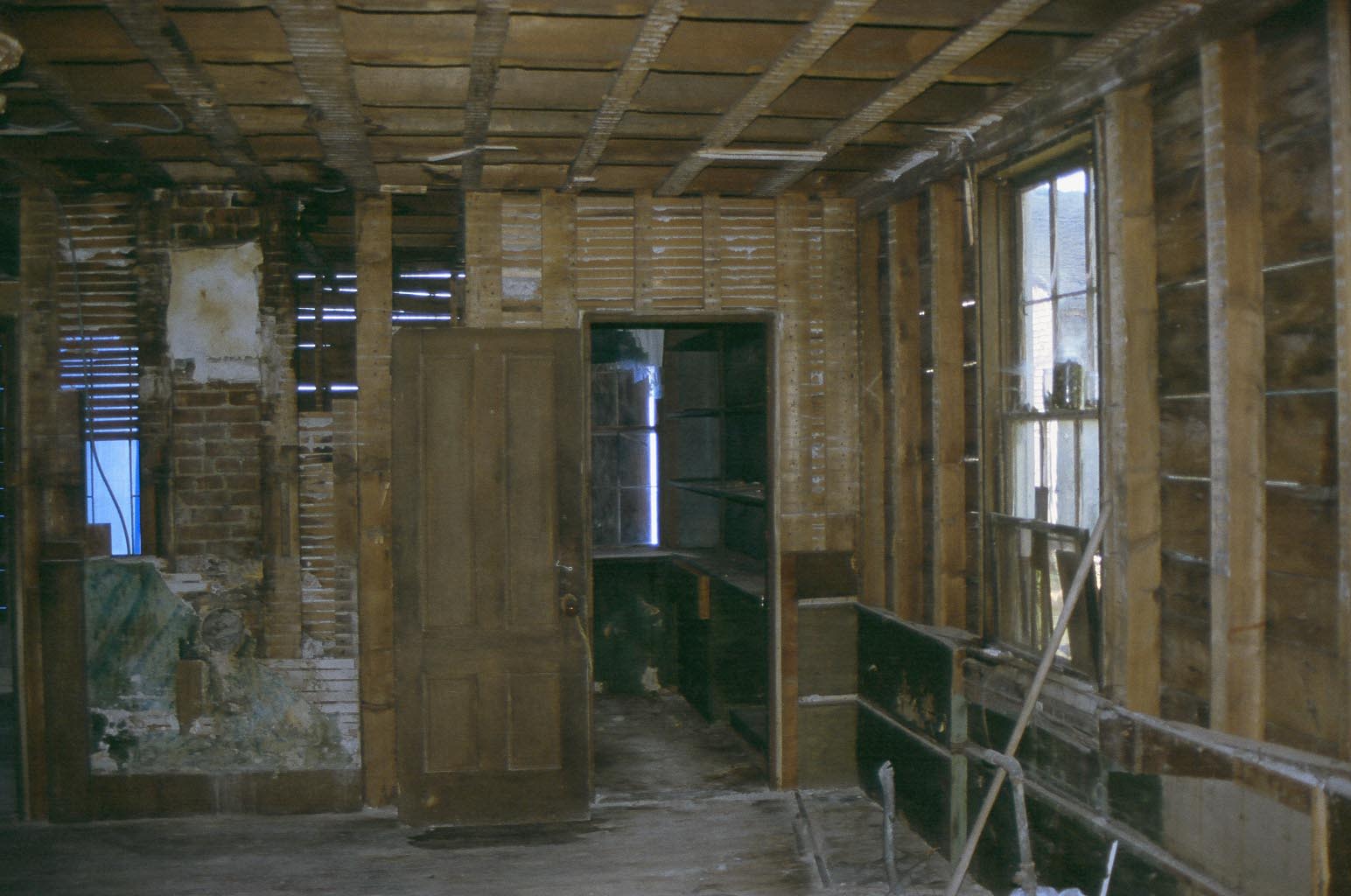
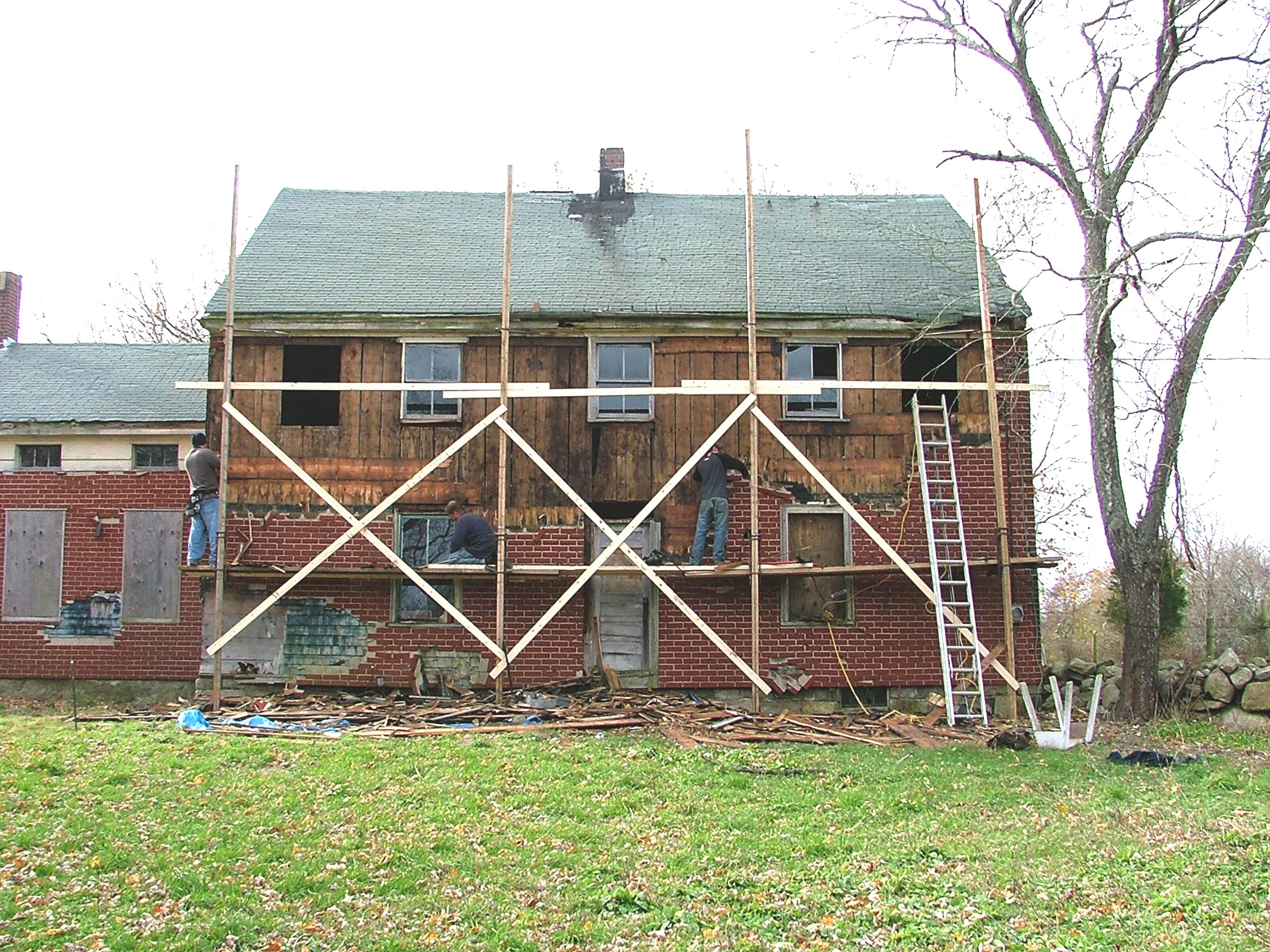

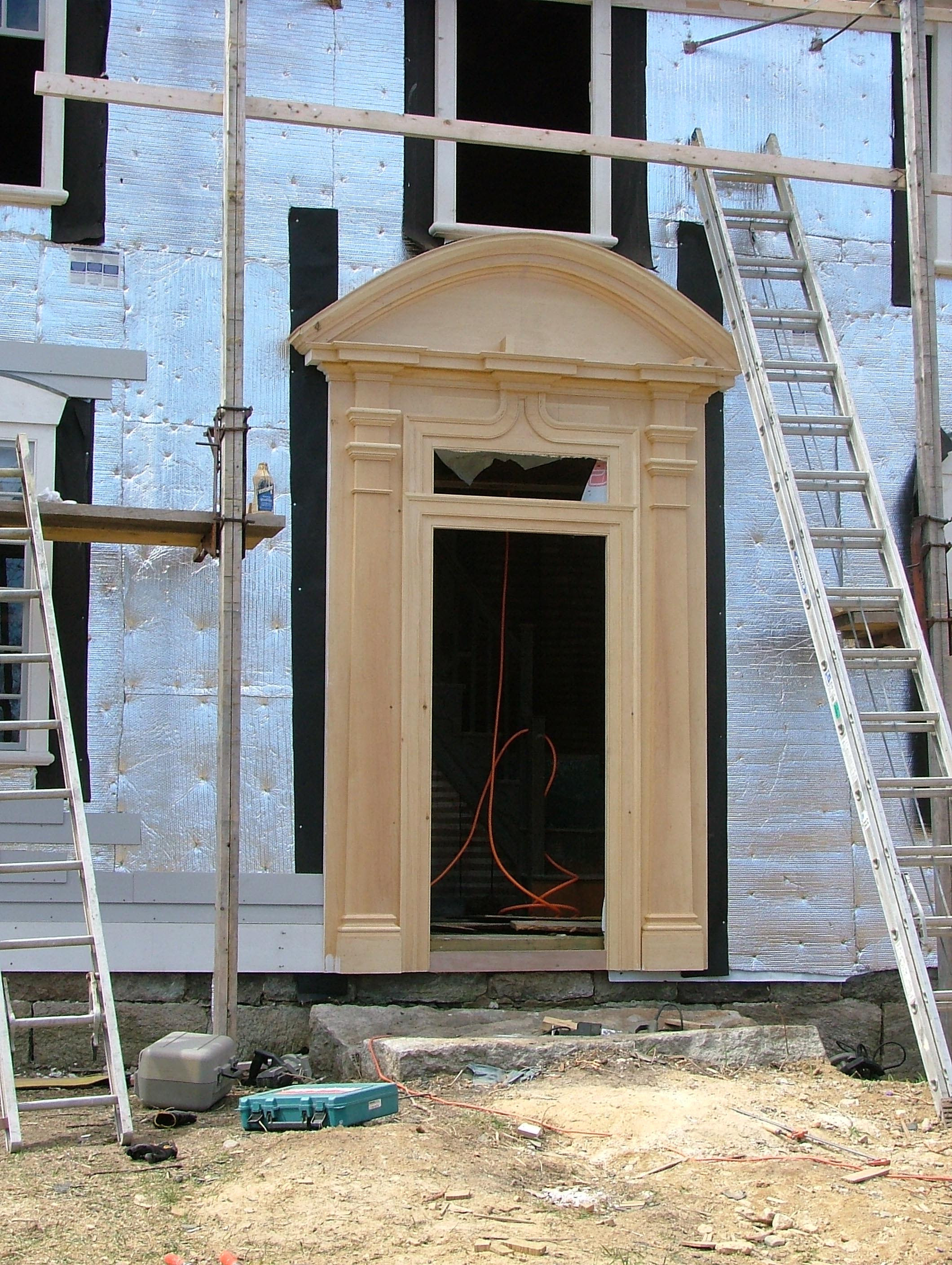

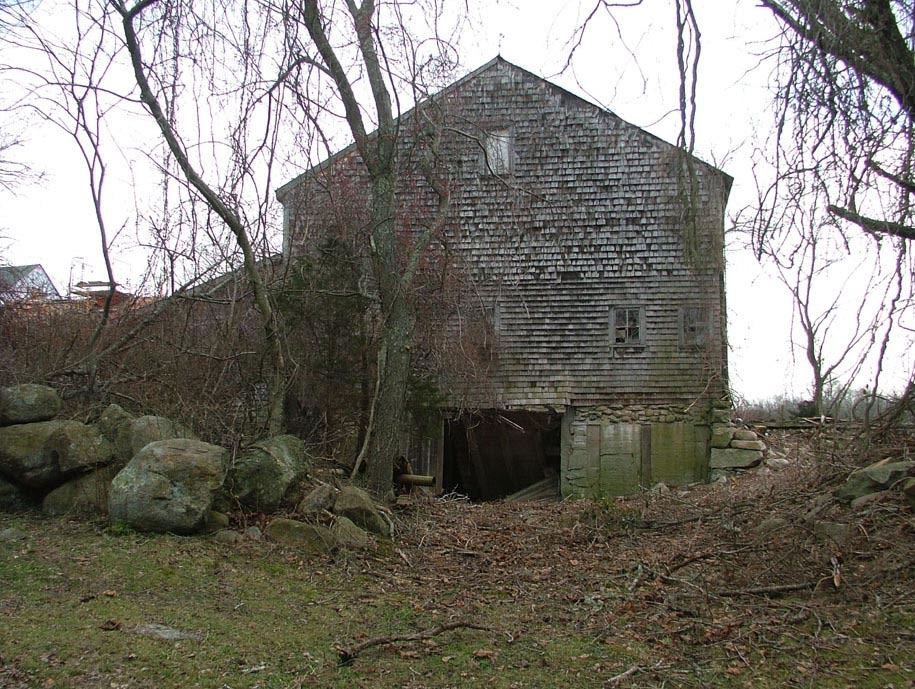
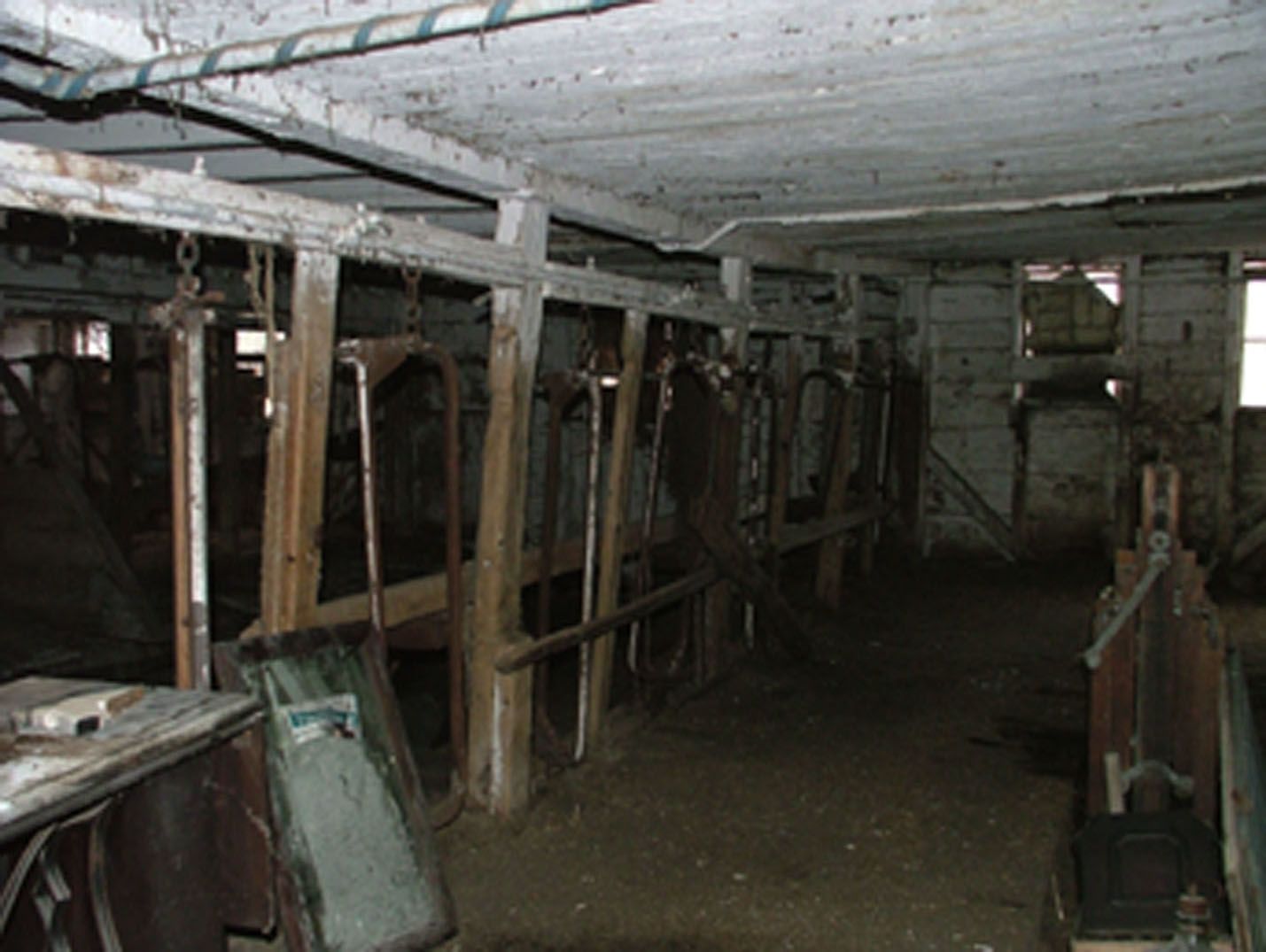
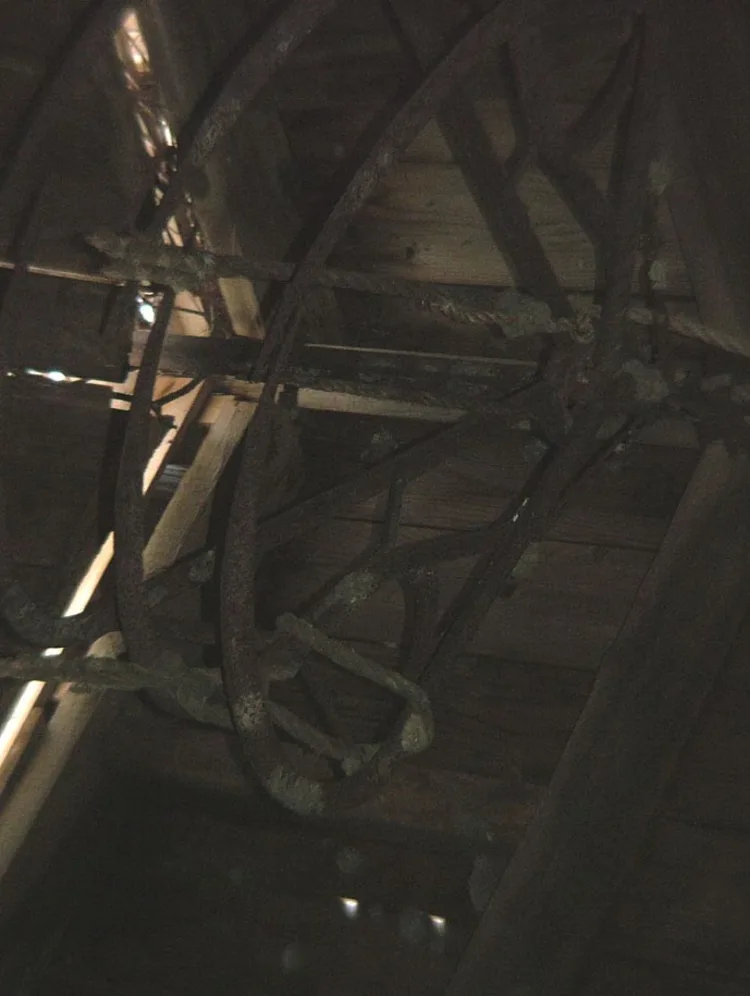
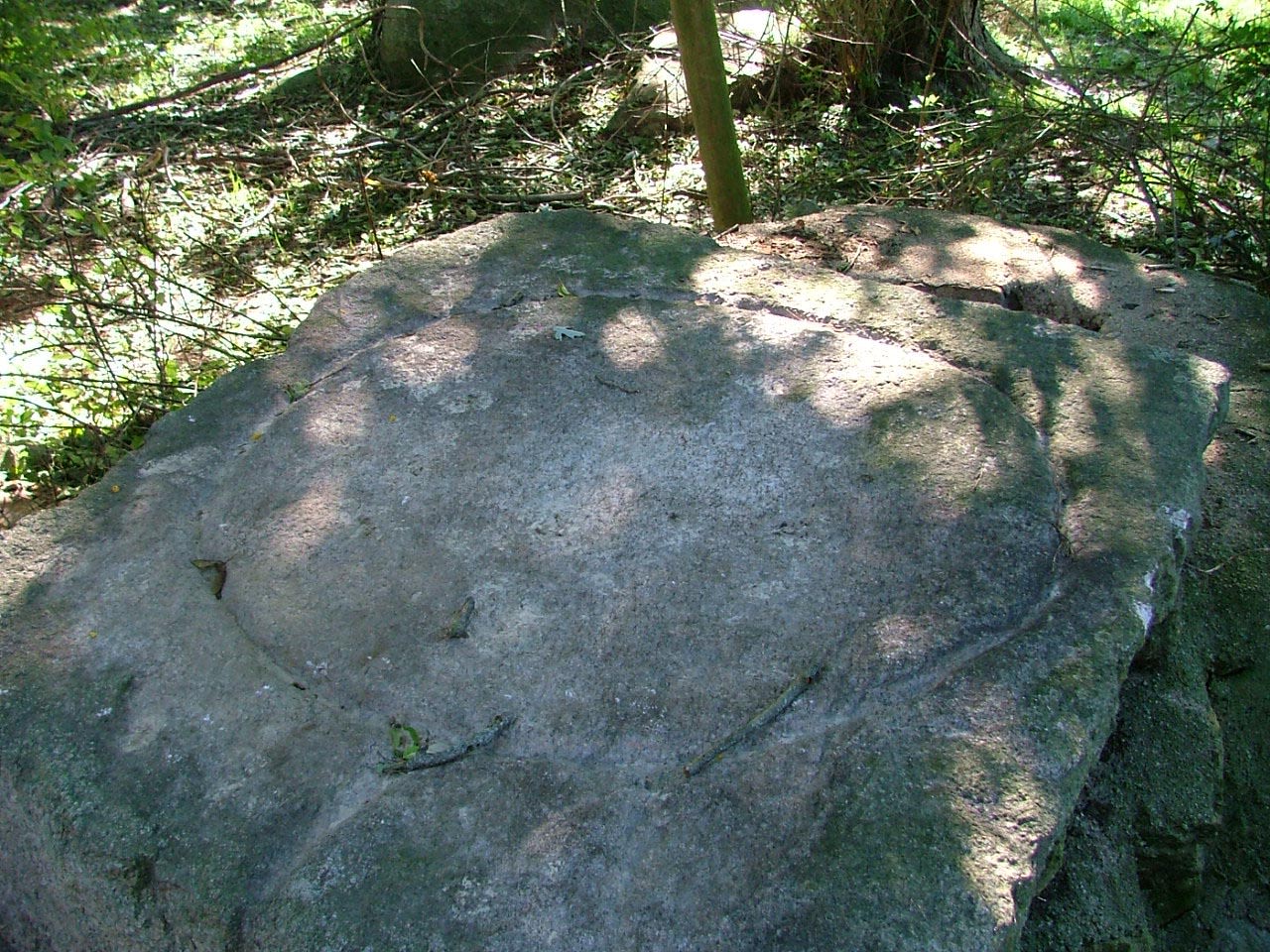

South wall exterior. Stripped down to the clapboard.
South wall exterior. Stripped down to the clapboard.

Cory House original window bottom
Cory House original window bottom

Behind the South Chamber Firebox. Showing the construction and history
Behind the South Chamber Firebox. Showing the construction and history

Photo showing the firebox opening, mantle and closet in the second floor northeast bed chamber. "This room is identical to the southeast bed chamber. The opening for the firebox is four feet wide by three feet high. A full length, small closet is located to the right of the fireplace. The floors are pine boards that average thirteen (13) inches in width." (from Anne Baker's Site and Building Summary - Cory Farm Complex)
Photo showing the firebox opening, mantle and closet in the second floor northeast bed chamber. "This room is identical to the southeast bed chamber. The opening for the firebox is four feet wide by three feet high. A full length, small closet is located to the right of the fireplace. The floors are pine boards that average thirteen (13) inches in width." (from Anne Baker's Site and Building Summary - Cory Farm Complex)

Firebox in the second floor southeast bed chamber
Firebox in the second floor southeast bed chamber

The pieces for the mantle in the second floor Southeast Chamber were recovered from the dump in the front yard and reconstructed.
The pieces for the mantle in the second floor Southeast Chamber were recovered from the dump in the front yard and reconstructed.

Old Kitchen in Cory House showing ceiling, pantry, and stairs.
Old Kitchen in Cory House showing ceiling, pantry, and stairs.

Pantry in Ell Kitchen
Pantry in Ell Kitchen

Removing faux brick siding from the front of Cory House
Removing faux brick siding from the front of Cory House

Clapboards being installed on ell of Cory House
Clapboards being installed on ell of Cory House

New Door for Cory House
New Door for Cory House

Renovated interior of Cory House
Renovated interior of Cory House

Back of Barn on Cory Farmstead
Back of Barn on Cory Farmstead

Interior of Barn on Cory Farmstead
Interior of Barn on Cory Farmstead

Hay Crane in Cory Farm Barn
Hay Crane in Cory Farm Barn

Lye Leaching Stone on Cory House property
Lye Leaching Stone on Cory House property
